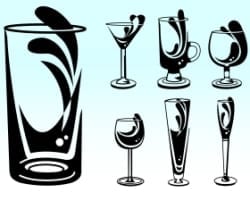In an effort to accelerate understanding of beverage sector impacts on climate change and identify reduction priorities for greenhouse gas emissions, the Beverage Industry Environmental Roundtable (BIER) has published its research on carbon footprints for five beverage categories – beer, bottled water, carbonated soft drink, spirits and wine.
The research is presented in a series of reports each including boundary assumptions, emission calculation details, secondary data sources and impact analyses discussions for each beverage category in Europe and North America. This research should assist BIER member companies, their customers, and the broader beverage industry to identify new opportunities for sustainable business practices that conserve resources, reduce emissions and protect the environment. The carbon modelling and analysis contained within the reports is based, in large part, on data from BIER member companies through their independent business evaluations, such as life cycle assessments and greenhouse gas inventories. The research is intended to identify those aspects of the beverage value chain that contribute significantly to the overall carbon footprint of a product and to evaluate the sensitivity of the carbon footprint to modifications in material or production practices such as packaging material selection, distribution logistics and recycling rates. It shows, for example, that the overall carbon footprint for the European 1.5 litre bottle format was estimated at 163 grams of CO2 per 1.5 litre bottle of bottled water versus 251 grams of CO2 per 1.5 litre bottle of carbonated soft drink. Another example was that, for the column distillation process used to manufacture spirits, the total carbon footprint was calculated to be 2745 grams of CO2e per 750 millilitre bottle whereas the overall carbon footprint for the European bottle format was estimated at 1286.3 grams of CO2 per 750 millilitre bottle. “As leaders in the beverage industry, we acknowledge our responsibility to transparency and commitment to advancing environmental sustainability of the sector through data collection and best practice sharing,” said Tod Christenson, Director, BIER, on the BIER website.“This research provides stakeholders with valuable insight into the important drivers of carbon foot-printing for beverages and will monumentally benefit discussions on hotspot identification, product category rules and metrics for greater environmental stewardship.”
“Research such as that undertaken by BIER is vital for beverage industries worldwide, as it identifies where those industries can reduce their impact on the environment,” said South African National Bottled Water Association CEO, Charlotte Metcalf. “For example, when it comes to the bottled water industry, using light-weight bottles could reduce emissions in the range of 30% to 50% of the total carbon footprint. “Also, product cooling for the North America scenario could account for up to 30% of the total emissions, but, for Europe, only up to 8 % of the total. The difference is due to longer storage times, greater fraction cooled in retail facilities and higher emission factors for electricity generation. “Variations in the electricity grid could account for up to 21% of emissions for North America, but only 12% for Europe due to the higher percentage of renewable generation in Europe. “Very importantly, I think, the mode of transport and choice of emission factor for distribution transport can have a significant effect on distribution emissions. Road transport emissions are greater than those resulting from rail transport. Emission factor choice for both modes of transport can significantly vary by the type of vehicle, for example, electric versus diesel rail transport. “Locally, we have yet to conduct similar research. However, there are lessons that we can learn from the European and North American data,” she said.






